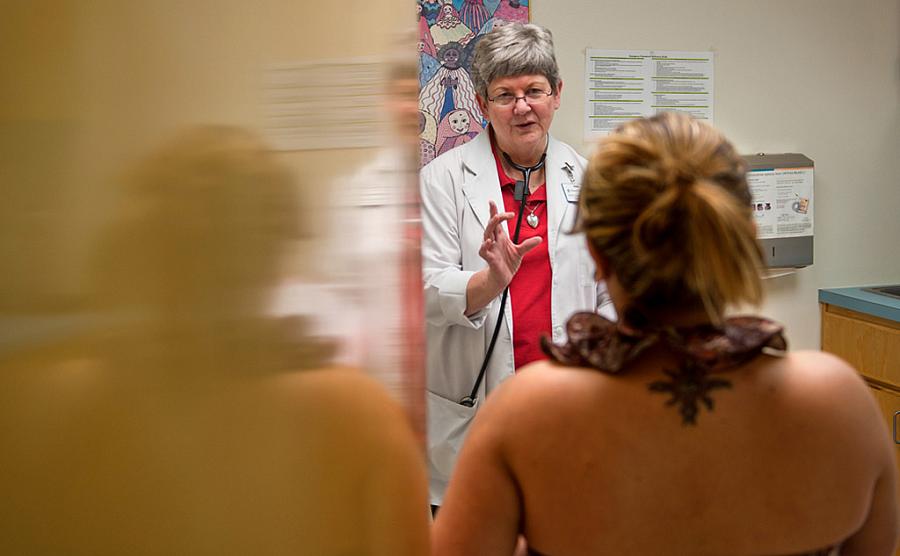Back to the Colonias -- This Time for Women's Health

For my fellowship project, I spent two weeks last summer chronicling the horrific health conditions in South Texas' colonias, and produced stories that ran in The New York Times and The Texas Tribune.
I had no idea how soon I'd be back to the Texas-Mexico border, back to the colonias, and back in The New York Times -- on an entirely different health-related story.
I've been writing a lot about the political battle over the Medicaid Women's Health Program, which provides birth control, well-woman exams and cancer screenings -- but no abortions -- to some 100,000 poor Texas women every year. Republican state lawmakers wanted Planned Parenthood out of the program altogether, and wrote a rule saying as much. The Obama administration threatened to cut off funding for the program, saying the "no Planned Parenthood" rule violated federal law.
My visit back down to the border was to interview the women -- many of them colonias residents -- who would be affected if their local Planned Parenthoods were dropped from the program. Many of them had already lost the only clinics in their neighborhood because of sweeping budget cuts to family planning in the previous legislative session.
What I learned on this trip was that the same limited access factors I found in my health fellowship project applied. These women, many of whom had several babies -- a few of them Medicaid-funded -- and were on birth control for the first time ever, struggled with transportation to get to the clinics. They didn't have childcare, and had to drag their kids with them. They didn't have phones to make appointments. They didn't have cash to pay for contraception. And they struggled with explaining to their husbands and boyfriends why they needed reproductive health care.
All of these challenges were compounded when the clinics they relied upon -- clinics within walking distance, clinics that did not perform abortions -- got tangled up in the state-federal stand-off over Planned Parenthood.
The day that I wrote this story, Gov. Rick Perry announced that Texas would find the money to run the program without the federal government's help -- but would continue to forbid Planned Parenthood to participate. What that means for these women in the colonias is that they'll have to find their way to other comprehensive care clinics associated with the Women's Health Program -- no easy task considering their already difficult circumstances.
I'd challenge reporters to step back from the politics of the national fight over abortion and Planned Parenthood and consider the real people affected. How are the legislative debates in your states, the budget cuts, the threats over cutting Title X federal dollars, impacting the clinics that perform these services, and the communities that rely on them? You'll find much more interesting stories, much more nuanced realities, much more compelling tales outside of your statehouse.

